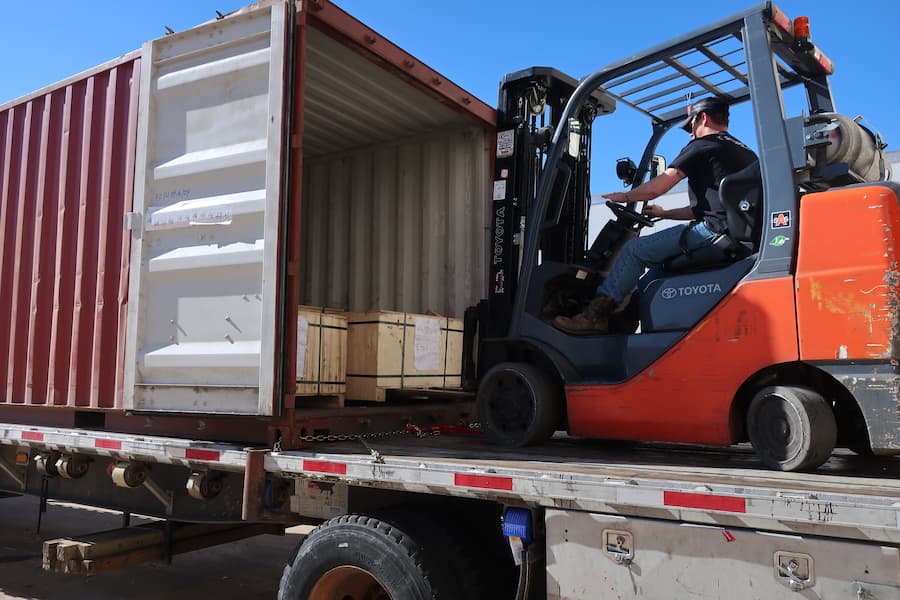As our nation’s infrastructure crumbles, states and cities are scrambling to fund the restoration of highways, bridges, and tunnels. One way to do it: tolls. Tolls—on bridges, on roads, and in congested city areas—are increasingly seen as the solution to critical funding woes: Over a dozen states are either opening toll roads or lanes, raising fees, or considering doing so.
“We’re seeing a number of states that do not currently have tolls express an interest in doing so,” Pat Jones, executive director of the International Bridge, Tunnel and Turnpike Association told npr.org.
But no one—from everyday commuters to interstate heavy equipment transporters—likes toll roads. Why take such drastic (and unpopular) measures? States and municipalities need the money, and they don’t see it coming from other sources. The Highway Trust Fund, which assists states with maintenance and construction projects, is predicted to be insolvent by 2021, as revenue generated by the federal fuel taxes isn’t enough to support it (the tax was last increased in 1993).
“So states are in many cases on their own,” says Jones. “They are looking for revenues and tolling is a powerful and effective way and a very specific way to pay for new infrastructure as well as generate funds to pay for existing infrastructure.”
“Local governments are seeing this (tolling) as a viable and useful option,” Bill Cramer, also of the International Bridge, Tunnel and Turnpike Association said in a Fiscal Times interview. “It pays for the road, provides a steady stream of revenue to maintain that road at high quality and safety. And they have been very reluctant to raise the gas tax that would fund those roads.”
“The money for the roads has to come from somewhere,” Carl Davis, research director for the Institute on Taxation and Economic Policy told the Fiscal Times. “In some cases, tolls are the path of least resistance.”
And in some cases, trucks seem to be bearing an inordinate share of the financial burden.
Are Trucks the Toll Fall Guys?
In most cases, trucks are charged more at tolls than autos. That trend is likely to increase as states look for money. Indiana recently green-lighted a plan to raise tolls on trucks by 35% in order to secure $1 billion in infrastructure funding.
Some transportation supporters think that tolls are being strategically placed on routes that interstate truckers must use, like South Carolina’s proposed I-95 toll. “The proposed toll collection location is clearly intended to target through traffic, which will undoubtedly have a disproportionate impact on commercial trucks,” said Mike Matousek, Manager of Government Affairs for the Owner-Operator Independent Drivers Association. “This is simply wrong.”
Rhode Island governor Gina Raimondo recently introduced a trucks-only toll plan. Her RhodeWorks program includes an eventual 13 truck-tolling gantries, the first two of which became operational June 11. The state launched the program in order to finance much-needed improvements in roads and bridges. Rhode Island ranks last in the US when it comes to bridges: a whopping 22% are deemed structurally deficient.
Rhode Island’s truck-only toll funding stream appears to be flowing strongly. The state’s Department of Transportation (RIDOT) says the program has exceeded expectations, garnering about $600,000 per month from the tolls. The state recently announced that its bridge conditions improved faster than any other state in the union and that construction jobs have increased by almost 20%.
Why Target Trucks?
An FAQ on the RIDOT website asks the question: “Why are trucks the only vehicles being tolled?” The site’s answer: “The rationale behind the RhodeWorks tolling program was to toll the vehicles that caused the damage that needs to be repaired.” Governor Raimondo has said that a fully loaded tractor-trailer has as much impact on highway infrastructure as nearly 10,000 cars, and a recent court document from the state says that “large trucks cause 70% of the damage to Rhode Island’s roads and bridges, but contribute less than 20% of the state’s annual revenue for infrastructure projects.”
But some take issue with these statistics. The statistics regarding the fully loaded tractor-trailer is from 1979, and the road damage may be unfairly assessed to trucks.
“They say truckers tear up the roads, highways, and bridges but it’s the chemicals they apply during the winter that tears up the roads,” says Joe Sculley, president of the Motor Transport Association of Connecticut (Connecticut is also considering a trucks-only toll). “You are saying that five percent of the people who use the road will pay 100 percent of the cost,” he told The Connecticut Post. “We now pay six times our fair share in taxes.” Truckers pay an average of $17,000 per rig in federal and state taxes.
Are Trucks-Only Tolls Even Legal?
The American Trucking Associations (ATA) thinks not. Last July, the ATA and three other plaintiffs brought a lawsuit against Rhode Island, arguing that truck-only tolls discriminate against interstate commerce. On March 19th, the U.S. District Court of Rhode Island dismissed the suit. “Here, the facts are clear that the fees, while dubbed ‘tolls’ are really a highly targeted and sophisticated tax designed to fund infrastructure maintenance and improvements that would otherwise need to be paid for by other forms of tax-generated revenue,” wrote U.S. District Court Chief Judge William Smith. “As such, the Court is without jurisdiction under the [Tax Injunction Act]; the federal case must be dismissed and ultimately heard in the courts of Rhode Island.”
The American Trucking Associations filed an appeal on March 28, claiming that the court did not address the lawsuit’s merit, and dismissed it on a technicality.
“Instead of considering our perspective, Rhode Island’s leaders, led by Governor Raimondo, marginalized us, dismissed us and chose the unfortunate path of designing, building and executing an unlawful and inequitable scheme of truck-only tolling,” said Rhode Island Trucking Association President Chris Maxwell.
And while the fight in Rhode Island may not be over, it may have quashed Connecticut’s plans. Connecticut Governor Ned Lamont, who campaigned on a truck-only tolling plan last year, publicly said he is reconsidering the idea.
Lots of Questions (and an answer)
Is a truck-only toll unconstitutional? Are decisions influenced by an anti-truck bias? How will states get the infrastructure funding they need if not through tolling?
We don’t have the answers to those questions. We do have the answer to your transport needs. We’re proud to offer exceptional heavy equipment transport services and on-time critical freight delivery. At Next Exit, we earn the trust of our clients with efficiency, transparency, and security. In addition, we understand how to handle freight services for unusual, oversize, or overweight shipments and are certified to arrange the shipment of hazardous materials. To learn more about our services, call Next Exit Logistics at 866-624-2661 or contact us via email.




